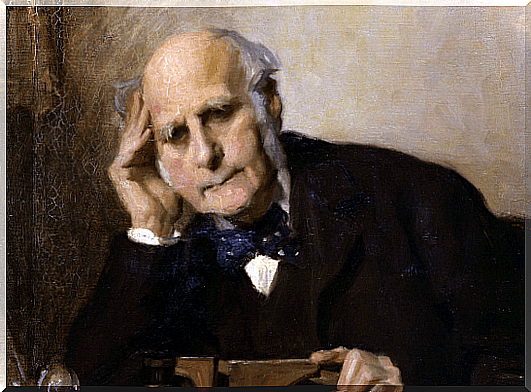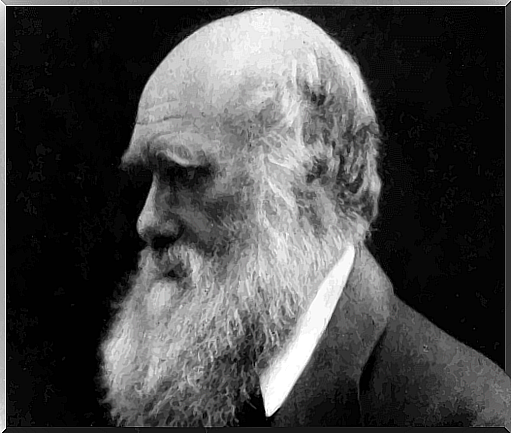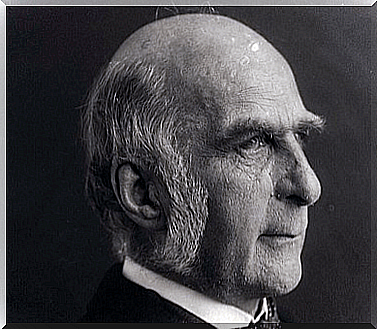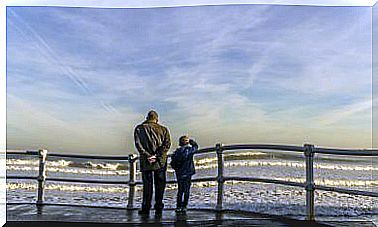Francis Galton: Biography Of A Great Researcher

British anthropologist, explorer geographer, inventor, meteorologist, statistician, psychologist and eugenicist. Cousin of Charles Darwin and grandson of Erasmus Darwin, Francis Galton was one of the most creative minds of the 19th century.
Galton belonged to the British upper class. He was a vocational scientist difficult to fit into a specific discipline, creator of the English biometric school. His contributions to fields as diverse as meteorology or psychology, among others, were extraordinary.
He spent much of his life traveling, like many other scholars of the time, eventually dedicating himself entirely to scientific research. After spending time in meteorology, he developed a growing interest in anthropology, inspired by his cousin Darwin’s On the Origin of Species. As a result of this, he became a defender and ideologist of eugenics, the discipline that advocated the application of biological laws to perfect the human species.
In the field of psychology, his contributions on individual differences are very important. In fact, Galton is considered a forerunner of knowledge about the genetic bases of cognitive ability. He was the first to scientifically investigate the genetic and environmental causes of individual differences in humans, a study that we can see reflected in his book Hereditary genius: an inquiry into its laws and consequences published in 1892.

His early years
Francis Galton was born in Duddeston, England in 1822. He was a child prodigy. When he was five years old he had a knowledge of mathematics, Greek and Latin and at the age of six he was already entertaining himself with adult books.
He attended school until he was sixteen, as he decided to drop out because of the tedious curriculum. His family pressured him since he was a child to study medicine, a science that he would study at King’s College in London. In addition, he studied Mathematics at Trinity College and Cambridge University. It was Dalton himself who years later would allude to the connection of genius and madness based on his own experience,
In 1844, he began his travel time, in which he traveled to ancient Constantinople and crossed Eastern Europe. It reached Egypt, Sudan, Beirut, Damascus and the Jordan Valley. Later he undertook a long expedition to Namibia and spent time in Spain. As a result of these journeys, he published two books: Explorer in Tropical South Africa (1853) and Arte de Viajar in 1855.
Your adulthood
They married in 1853. Their marriage lasted 43 years, although they did not have any children. It is from 1860 when Francis Galton devoted himself entirely to scientific research. His love of mathematics made him develop knowledge in different fields.
In meteorology he created the first weather maps published by the Times newspaper and invented the term anticyclone. On the other hand, his research on the human mind required the detailed recording of subjective concepts and how the mind deals with mental images. Thus, in order to put it into practice, he used the survey and questionnaire methods, being a pioneer in the use of the latter. In addition, his contributions to statistics are numerous.
In the field of anthropology, his theory of heredity and demographic statistics stand out, topics on which he wrote books such as Hereditary Genius , 1869 and Natural inheritance , 1889. His theories about heredity were of great importance in his time, although finally they would be surpassed by those of Mendel and Weismann. In addition, his works on fingerprints and eugenics in the field of anthropology also stand out.
Differential psychology
The studies that Francis Galton carried out on human capacities led him to the creation of differential psychology and the formulation of the first mental tests through the development of psychometry.
He had a great interest in measuring all possible facets of human beings that seemed to have no end. Among them, the measures of intellectual dexterity and intelligence capacity.

Francis Galton and eugenics
Galton was the first author to refer to the dilemma between heredity and environment, a debate that has continued over the years until today it is considered a question of degree between influential elements.
In 1883 he invented the term eugenics to refer to artificial selection for the betterment of the human race. In his book Inquiries into Human Faculty and its development , 1883, we can see how he came to the conclusion that he believed in the possibility of determining a scheme of “marks” for family merits. In addition, it also considered that among families of high social class or rank, early marriage had to be encouraged through monetary incentives. In fact, he considered later marriages between distinguished people and the scarcity of children to be dysgenic.
These and other theories served as the basis for ideals of race superiority such as that proclaimed by German Nazism. In this way, the practice of eugenics resulted in racial cleansing, sterilization of people with disabilities, the mentally ill, and poor citizens.
However, England, the United States and some Latin American countries also implemented eugenics programs, but they ended up falling into disrepute for their association with Nazism.









